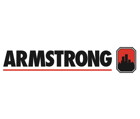DON’T FIND YOURSELF ON THE WRONG SIDE OF THE LAW

As specialists in HVAC, building engineers are used to tracking the regulatory requirements around M & E. Over the last year, however, it has been a regulation relating to the construction side of our industry that has caught a number of companies on the hop. I am referring, of course, to EN 1090 which dictates requirements for CE marking for the ‘Execution of steel structures and aluminium structures’.
This piece of legislation, which became law in July 2014, focuses on fabricated structural steel that is designed to be load bearing and permanent. It requires that the supply chain must have compliance, and it is mandatory for manufacturers (as well as some steel stockholders and distributors) throughout the European Economic Area.
Despite the fact that it is has been almost four years since EN 1090 became law, only about 25%, of the 10,000 or so businesses estimated to require compliance, are actually certified. This represents a huge business risk for anyone specifying, buying, installing and working with steel structures, because if you don’t appoint a certified sub-contract company to issue a Certificate of Conformity and Declaration:
a) You will be in breach of Building Regulations and NHBS requirements
b) You could cause the project to be refused building insurance
c) You could find yourself in a breach of contract with your client, leaving yourself at risk of non-payment
d) You put yourself at risk of a major non-conformance and the withdrawal of certification in relation to ISO 9001
e) You are more vulnerable to contractual disputes, and the risk that the project cannot be handed over
f) You risk prosecution and the associated damage to reputation from bad publicity
So has this significant business risk been overlooked?
A major factor is that many companies simply do not understand how far-reaching these legal requirements are. The range of products that fall under this heading is extensive, going way beyond the steel used in the fabric of the building itself. Another factor might be that many of the companies requiring certification are under the misapprehension that, as a European regulation, this will somehow disappear with Brexit. This is not the case. There are no plans to replace CE labelling as a proven way of attaining and maintaining quality and safety standards. EN 1090 is here to stay, and there are real risks involved for the HVAC industry (and indeed the wider construction industry) if its importance continues to be underestimated.

Immediate action is needed to ensure that businesses are not risking commercial or contractual problems in the future, and are protected from legal prosecutions in the event of purchasing from non-certified suppliers.
Where and how does EN 1090 affect Armstrong Fluid Technology?
EN 1090 does not apply to all of our portfolio, but there are certain products and systems that are covered by it. To ensure that we can offer complete compliance to our customers we have worked our way through the various requirements of the standard and are pleased to advise that we are fully certificated to EN 1090 by BSI. This means that all Armstrong products requiring certification, including our packaged plant rooms and iFMS (integrated fluid management systems), are completely compliant.
As a word of warning, we are aware that a number of our competitors in the off-site manufacture sector do not have this level of certification. So we felt that it was important to flag up to all buyers and specifiers that it cannot be assumed that this specific area of compliance is in place across the board. Our advice is to ask the relevant questions before entering into discussions with suppliers, and especially before entering into any contractual arrangements. If you are told that the products or systems you are purchasing are not covered by EN 1090, you can double-check by contacting BSI. Alternatively, the 1090 Register has been set up to provide a voluntary database of compliant suppliers. You can find details at www.1090Register.com.
Lastly, buying products and systems through an EN 1090 certified company will not involve you in additional administration and cost. Most importantly, it will ensure that you stay on the right side of the law, and can prevent costly potential contractual disputes with the client at handover.
By Steve Rees, Sales Director, Armstrong Fluid Technology
For details of Armstrong's EN 10-0 compliant products and systems email sales@armstrongfluidtechnology.com, or tel. 08444 145 145







